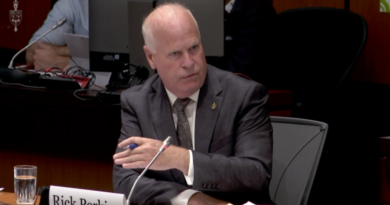Report Shows Children With Down’s Syndrome and Cerebral Palsy Waiting for Years to Receive Diagnoses
The Children’s Commissioner reported that 15 percent of children with autism and 23 percent with ADHD had to wait over four years for a diagnosis.
Children with conditions like Down’s Syndrome, cerebral palsy, autism, and ADHD are experiencing prolonged waits between referral and diagnosis or support, according to the Children’s Commissioner report.
Children with Down’s Syndrome referred to community health services had the longest wait, with an average of 929 days or around two years and seven months between referral and their first appointment.
Children with cerebral palsy waited 827 days between referral and first contact, with an average wait of 1,222 days to receive a diagnosis.
For neurodevelopmental conditions, 15 percent of children with autism and 23 percent with ADHD had been waiting for more than four years for a diagnosis.
De Souza’s report utilized unpublished NHS England data from the two years leading up to March 2024 to compile an overview of children’s waiting times across community health services and mental health services.
Approximately 400,000 children in England were still waiting for their assessment at the end of March 2023 after being referred to community or mental health services, accounting for around 3 percent of the country’s total child population.
‘Robbing’ Children of Childhood
The report also revealed that children had to wait an average of two years and three months for a diagnosis of any neurodevelopmental condition through community services. Nearly one quarter (24 percent) waited between two and four years, with another 17 percent waiting over four years for a diagnosis across both mental and community health services.
Children with intellectual disorders faced waits of over 1,000 days for a diagnosis, with girls waiting an average of 1,129 days and boys waiting 1,019 days.
De Souza highlighted in the report that delayed support is not only a waste of public funds but also deprives children of their childhood and potential.
The Children’s Commissioner warned that delayed support could lead to a surge in demand for adult social care services, with neurodivergent children who lack proper support being more susceptible to mental health issues, substance abuse, and criminal behavior as they grow up.
Better Support Needed
De Souza emphasized the urgency for action to address the broken healthcare and Send systems, as the existing commitments from the Government are welcomed but require immediate implementation.
An NHS spokesperson mentioned that new national guidance had been issued to aid local areas in managing the 50 percent rise in referrals for autism and ADHD over the past year.
“The NHS has established an expert taskforce to investigate challenges in services, manage increasing referral numbers, and continue to improve care delivery to ensure everyone receives the necessary support,” the spokesperson stated.
A government representative affirmed that through the administration’s 10-Year Health Plan, efforts would be made to reduce the “unacceptable” wait times and enhance support pre and post-diagnosis.
“We are committed to improving inclusivity and expertise within mainstream schools, with special schools catering to those with complex needs to promote optimal life chances for every child,” the representative added.
PA Media contributed to this report.





